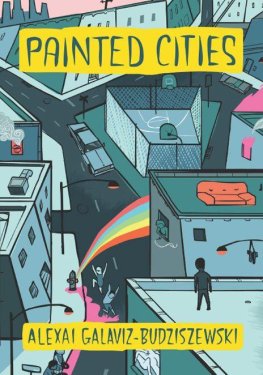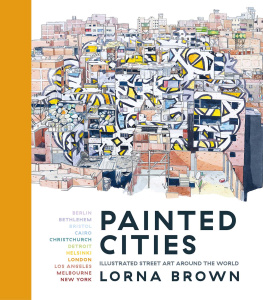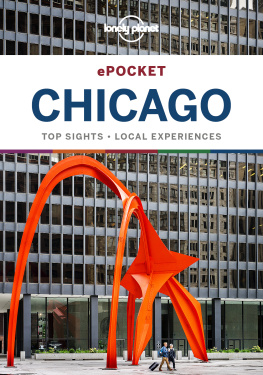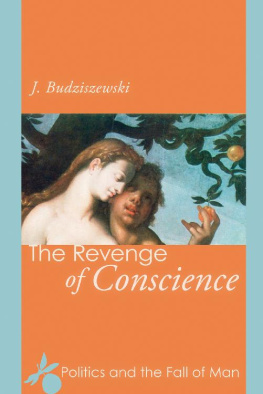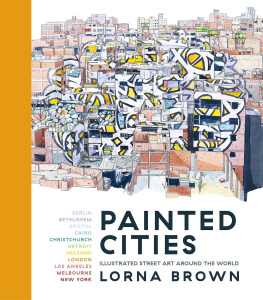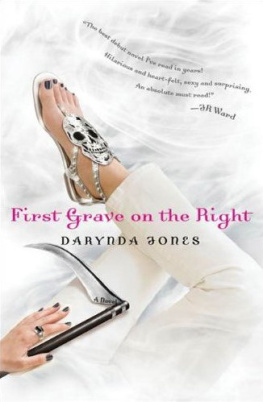Alexai Galaviz-Budziszewski
Painted Cities
So put me on a highway
And show me a sign
And take it to the limit one more time
Eagles
My memories come in negative. My mother had a box of photographs, but I dont recall ever seeing any of them. Instead, what I recall are her negatives: the orange-tinted strips of color film that she kept tucked in the developers envelopes. Some of these envelopes shed labeled CHRISTMAS 1974; FLORIDA 1972. Others she hadnt, and she would lift these out of the photo box and say, All right, lets see what these are from. She always went for the negatives, never the actual prints.
My memories compete with reality. I know my uncle Juan had a cream-colored Lincoln. We waxed it every fall, every spring. I used to sit in the backseat while my uncle cruised with his girlfriend, Letty. They hardly spoke a word, only listened to music: the OJays, Earth, Wind and Fire. Sometimes my uncle would look back at me. Then Letty would look back too, and then they would look at each other, and smile.
When it was dark and we had dropped Letty off, I used to sit in the front seat and stare at the glowing dashboard. The warm smell of summer always poured in through the open windows, even when we stopped at a red light or stop sign. In the flood of streetlights, my legs would turn a bright orange and I would wonder if I was going to get a sunburn. Wed drive a little longer. Id try to guess where we were by the tops of the apartment buildings. I never knew when we had actually returned home. My uncle would say, Okay, man, lets go. And only then would I know that we had parked and that the ride was over.
I remember all this vividly, our summer nights, but really, all I can recall is what it felt like. I try to piece together image from that. When I try to think of image, what I see is the light blue of my uncles skin, the silver black of his Dago T-shirt. What comes to mind is a glaring white night sky, a glaring white dashboard, luminescent, bright opaque, an opaque so bright you want sunglasses, but then you realize anything dark is just as bright, and youre helpless. What comes to mind are my uncles dark teeth as he smiles, frightening, outlined in white, like ghost images. And I can see through my uncle, his ice-blue skin. I can see the tuck-and-roll of the drivers side door. I can see the darkness of the chrome door handle and window lever, all this in complete reverse, like an x-ray image.
When I was seven or eight, there was cotillion in my family. My cousin Irene had just turned fifteen. My sister, Delia, who was only a year older than me, was selected to participate as a dama, and my cousin on my fathers side, Little David, was selected as her escort, her chambeln.
The girls wore pink outfits. I dont remember this, but in the basement of our old house, my sisters pink gown hung in a plastic sheath throughout my childhood. My sister wore a corsage, and a pink headband to keep her hair back. These things I also dont remember, but there was a negative, a photograph of my sister and Little David, together in front of the house we used to live in.
In the negative, her gown is purple. In the negative, everything pink is a deep, luscious purple, a purple Ive never seen before or since, bright, yet at the same time thick and heavy. David, in his tuxedo, is only his reverse: wide lapels, black coat with tails. Stuck in his left lapel is a fat carnation, dark, like a bundle of black roses. And his teeth are glowing. In the negative, Davids teeth are glowing, the way my uncles used to late at night, when we cruised our neighborhood.
There was a shootout at the cotillion. My cousin Irene was dating a Morgan-Boy and a rival street gang had shown up, friends of one of the guests. I didnt know where my father was. I didnt know where my sister was, or David. But my mother took me underneath the table and held my head in her lap and covered my ears. I remember the gunshots. I remember the screaming.
Eventually my mother let me lift my head. The white tablecloth draped around us like long curtains. My mother opened her purse, and beneath the table, with gunshots ringing off the walls of the church basement, my mother pulled out an envelope of photographs. All right, she said. Lets see what these are from. And against the glowing white of the tablecloths edge, we held up our orange strips of celluloid and saw things that werent there, colors that didnt exist.
My sister and I used to pan for gold. We used to squat along the curb of May Street, with the frying pans our landlady, Betty, would let us use, and sift through the water that flowed from the fire hydrant that our upstairs neighbor, Joe, would open up whenever it was especially hot out. I can remember scooping up mounds of grit from the gutter and turning it over and over in small seesawing circles, convinced that I would one day strike it rich. I suppose, in all our days of panning, if Delia and I had turned in all the glass we collected, all the bottle tops and all the can tabs we found, we might have become millionaires, but probably not. Still, as we made up our separate mounds of would-be valuables, depositing our finds in coffee cans labeled GOLD, SILVER, and DIAMONDS, filling each one up with bottle tops, can tabs, and broken glass, respectively, we thought of how we could one day buy a mansion for my mother, a Jaguar for my father, and how we could leave our apartment to our uncle Pepe, who slept in our pantry along with the chiles and frijoles.
I dont know where, on the South Side of Chicago, Delia and I got the idea to start panning. It did not seem instinctual, like I later realized looking behind my back every few steps was something inherently South Side. But we panned for gold nonetheless, devoutly, often consuming entire afternoons sifting through the cold water that flowed like swift-moving streams down the gutters of May Street. Eventually our panning became so routine that when Joe from upstairs would crack open the fire hydrant on those sweltering days when the humidity weighed upon our heads like torture, Betty would simply leave the pans we used outside her first-floor apartment. The moment Delia and I were allowed out, we would race down our apartment buildings steps, scoop up our pans mid-stride, and burst out onto May Street, where we would take up our positions along the running water and begin to sift and pour.
Until our panning, the main attraction on such hot days was watching the older kids play in the huge domes of water they would create with the pumps. An utter mystery for me until well into my youth was what old tires were doing wrapped around all the fire hydrants. Then, early one summer, I caught the older kids of my block wedging a board between the tire and the mouth of our hydrant, creating a ramp, a deflector for the sheer rush of water. The result was an explosion, a cascading bloom of water that when done right could reach the other side of May Street. I realized suddenly the ingenuity of the kids in my neighborhood.
There were battles to see which block reigned supreme, which block could build the most gargantuan dome of water. While there was never any organized contest, no official measurement, no agreed-upon rating system, whenever someone would walk down to a store on Eighteenth Street past the neighboring blocks, he would always return with vivid, detailed accounts of how the dudes over on Allport or Throop got one thats fucking huge, and here he would spread his arms in some random inflated measurement. These words seemed to spark something in the residents of my block. When they heard them, they would all inherit the wide, bright eyes of the storyteller, and it would seem suddenly as if there were some greater purpose now, something to band together for defeat of a neighboring block. So Joe from upstairs would be called, and he would come charging out, barefoot, in his cutoffs, squinting at the exhaust of the cigarette dangling from his mouth, carrying the heavy iron pump key the tool that allowed him to open the hydrant and he would slowly, professionally, crank up our water pressure, inflate our dome of water even higher. The valves would creak, beneath the sidewalk the water lines would shudder, everyone would wonder when Joe was going to stop, and then finally he would, and a cheer would go up, and Joe would retreat back upstairs, where Im sure a Sox game and a six-pack of tall boys were waiting on him.

